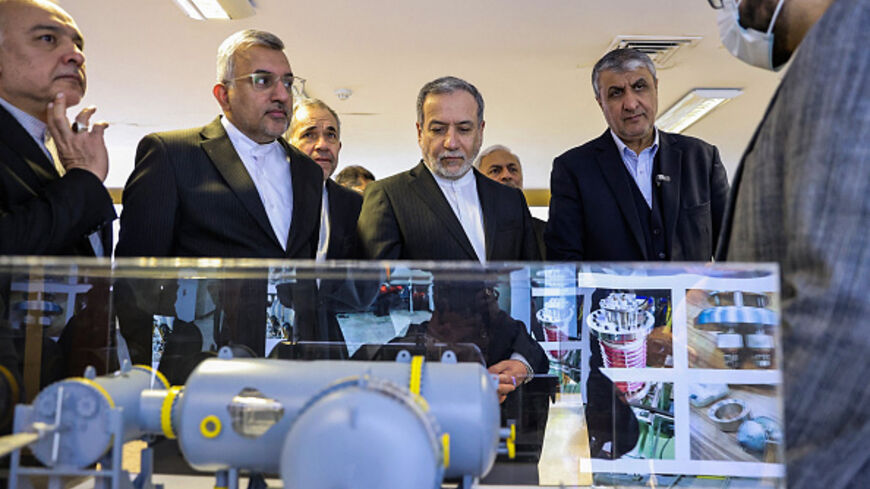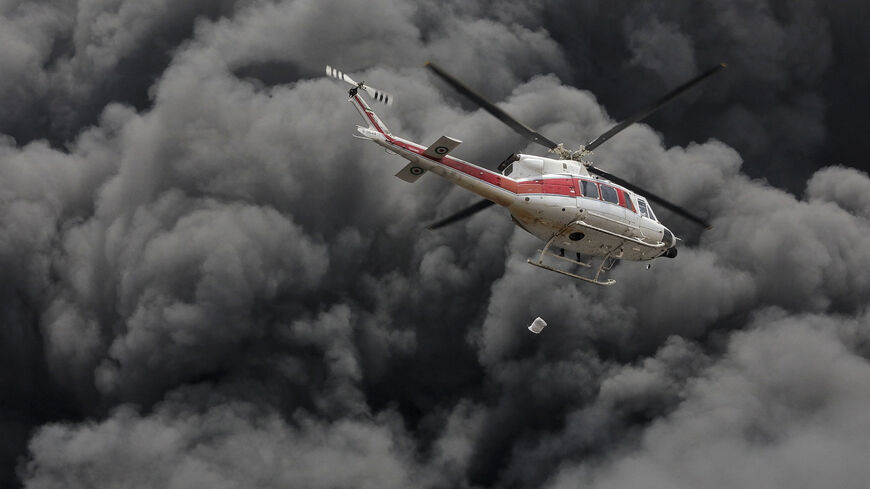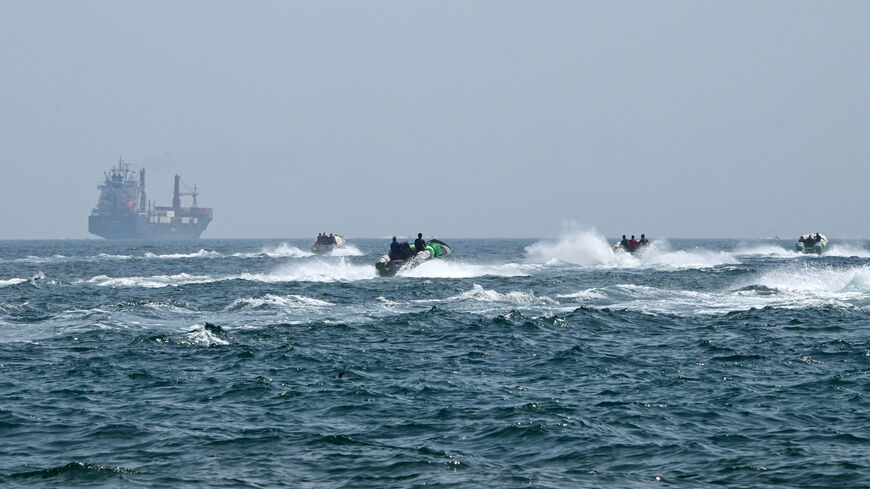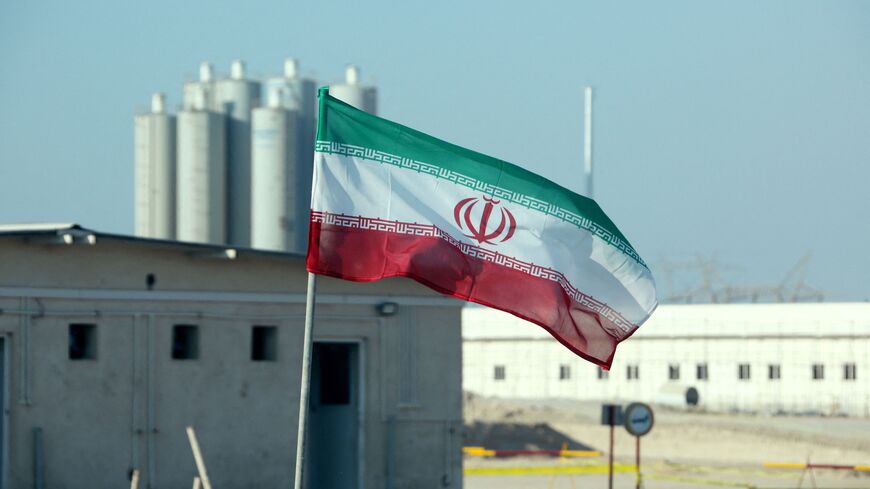As IRGC vows response, IAEA says Iran breached non-proliferation obligations
The UN nuclear watchdog found that Iran is in breach of its obligations — a rare move that risks further escalating tensions over Iran's nuclear program.
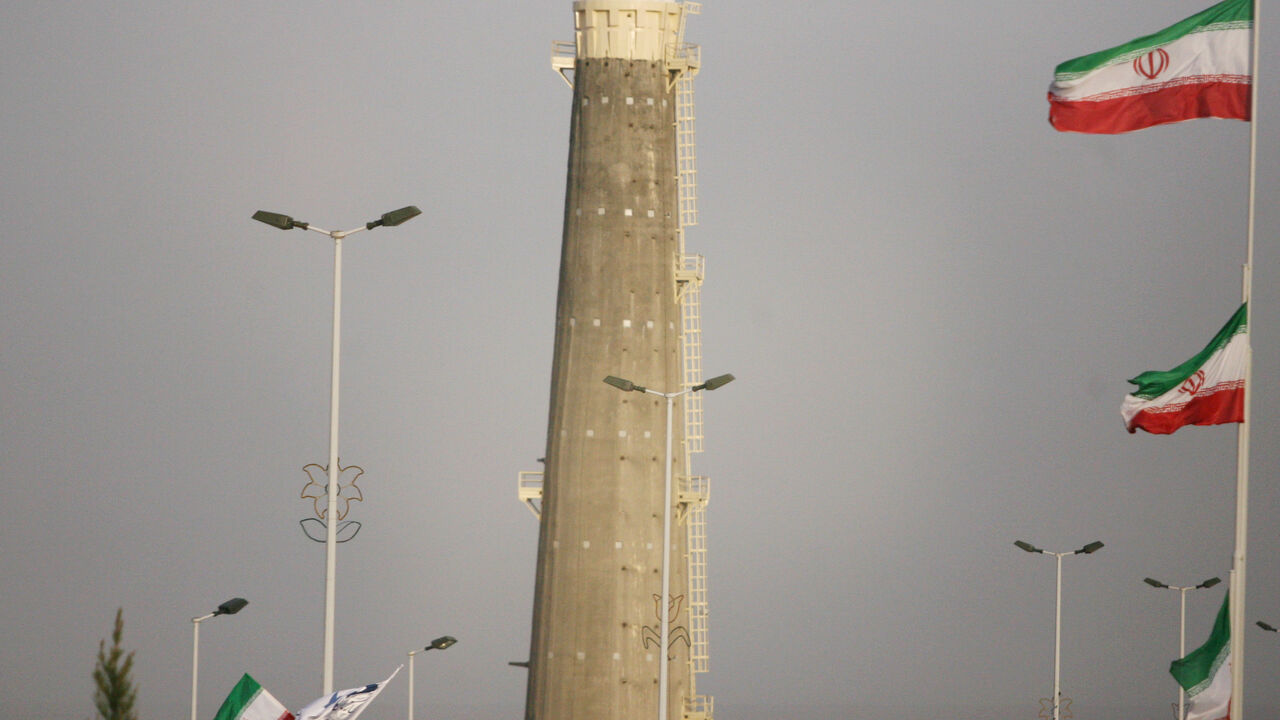
For the first time in two decades, the International Atomic Energy Agency (IAEA) formally concluded on Thursday that Iran is in breach of its non-proliferation obligations. The announcement comes amid escalating tensions between Washington and Tehran over Iran’s nuclear program, as the Islamic Revolutionary Guard Corps (IRGC) vowed Thursday to respond to any military threat.
The UN watchdog’s board of governors passed a resolution submitted by the United States, Britain, France and Germany during a closed-door vote held in Vienna on Thursday morning. Nineteen countries voted in favor of the resolution and 11 abstained, while Russia, China and Burkina Faso opposed it.
Iran censured
“The Board of Governors … finds that Iran’s many failures to uphold its obligations since 2019 to provide the agency with full and timely cooperation regarding undeclared nuclear material and activities at multiple undeclared locations in Iran … constitutes non-compliance with its obligations under its Safeguards Agreement with the Agency,” the text of the resolution, seen by Reuters, said.
The resolution follows an IAEA report submitted to member states in late May, which found that Iran had conducted secret activities involving nuclear material until the early 2000s at three undeclared sites that had been under investigation.
That report concluded that Iran’s cooperation with the agency has “been less than satisfactory.”
Iran immediately condemned Thursday's resolution, calling it politically motivated and baseless.
“Iran has always complied with its safeguards commitments,” a joint statement by the Iranian Foreign Ministry and the Atomic Energy Organization of Iran read.
The statement added that Iran’s atomic chief had ordered the establishment of a new uranium enrichment facility in a "secure location" and the installation of advanced centrifuges at one site in response to the IAEA’s move.
In an address on Thursday during a visit to Iran’s Ilam province, President Masoud Pezeshkian vowed to continue enrichment. “We will go our own way, we will have enrichment and we will not back down,” he said.
He emphasized that should Iranian nuclear facilities be damaged, Iran will rebuild them. “All these capabilities are in our thoughts, and therefore, whatever they do, we will rebuild,” Pezeshkian said.
The resolution marks the first time in 20 years that the IAEA has formally declared Iran in violation of its non-proliferation obligations.
The last such resolution dates back to September 2005, when the IAEA concluded that the nature of Iran’s nuclear activities and its failure to provide assurances of their peaceful intent fell under the purview of the UN Security Council.
On Thursday, however, the IAEA stopped short of referring Iran’s non-compliance to the Security Council — a step that could potentially trigger the reinstatement of economic sanctions lifted under the 2015 nuclear deal between Iran and world powers, including the UK, China, France, Germany, Russia and the United States.
A European diplomat told The New York Times that the decision not to refer the case could be a tactic to pressure Iran into cooperation.
Based in Vienna, the IAEA monitors Iran’s nuclear activities, including uranium enrichment, and ensures compliance with the Nuclear Non-Proliferation Treaty, to which Iran is a signatory.
Tehran launched its nuclear program in the 1970s. Since the 1979 Islamic Revolution, however, the program has come under heightened scrutiny from the UN, the United States and their partners, despite Iran’s repeated assurances that it is enriching for civilian purposes.
Under the 2015 deal — known as the Joint Comprehensive Plan of Action — Iran agreed to cap uranium enrichment at 3.67% in exchange for sanctions relief and also allowed the IAEA expanded access to monitor its nuclear sites.
But following the Trump administration’s withdrawal from the agreement in 2018, Iran ramped up enrichment activities and restricted IAEA access to some facilities.
In December 2024, the IAEA warned of Iran’s plans to “quite dramatically” expand its stockpile of near-weapons-grade uranium. A report released in February 2025 found that Iran’s enriched uranium had reached 60% purity as of Feb. 8 — just below the 90% required for weapons-grade material.
US evacuating personnel
The new resolution comes amid heightened tensions between Iran and the United States, just days before the sixth round of nuclear talks in Oman on Sunday.
A spokesperson at the US Embassy in Baghdad confirmed to Al-Monitor that the departure order applies both to the embassy and the US Consulate General in Erbil.
The United States announced it was evacuating diplomatic personnel from Iraq after Iranian Defense Minister Aziz Nasirzadeh issued threats on Wednesday, vowing to strike US bases in the region if nuclear talks fail or conflict breaks out.
The IRGC echoed those threats on Thursday, saying it is prepared for any military confrontation.
“The enemy sometimes threatens us with military action. We have always said — and repeat now — that we are fully prepared for any scenario, under any circumstances,” IRGC commander Maj. Gen. Hossein Salami said during a ceremony in Tehran.
US special envoy Steve Witkoff and Iranian Foreign Minister Abbas Araghchi have held five rounds of nuclear talks since April 12, mediated by Oman, with little progress due to disagreements over Iran’s right to uranium enrichment.
On Tuesday, Al-Monitor's Ben Caspit reported that Israel is prepared for a strike on Iran's nuclear infrastructure. "All that's missing now is the decision and the order," a senior Israeli security source told Al-Monitor.
Rosaleen Carroll in Washington contributed to this report.

